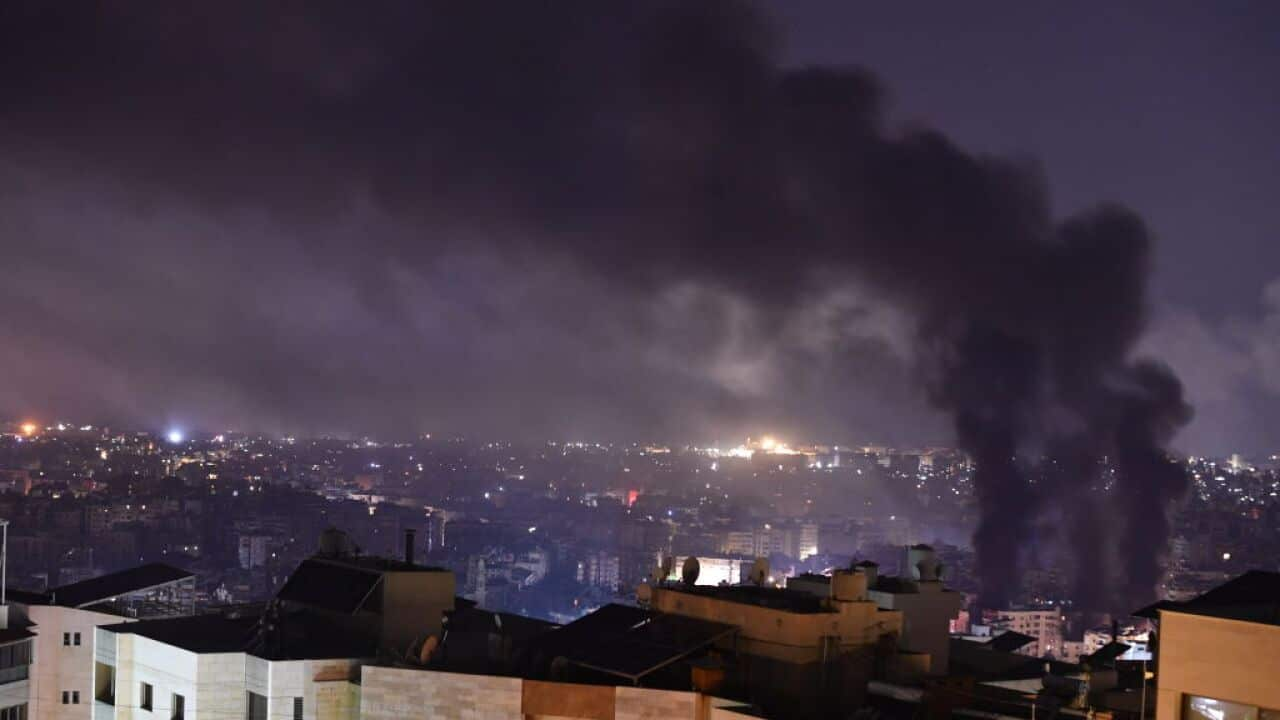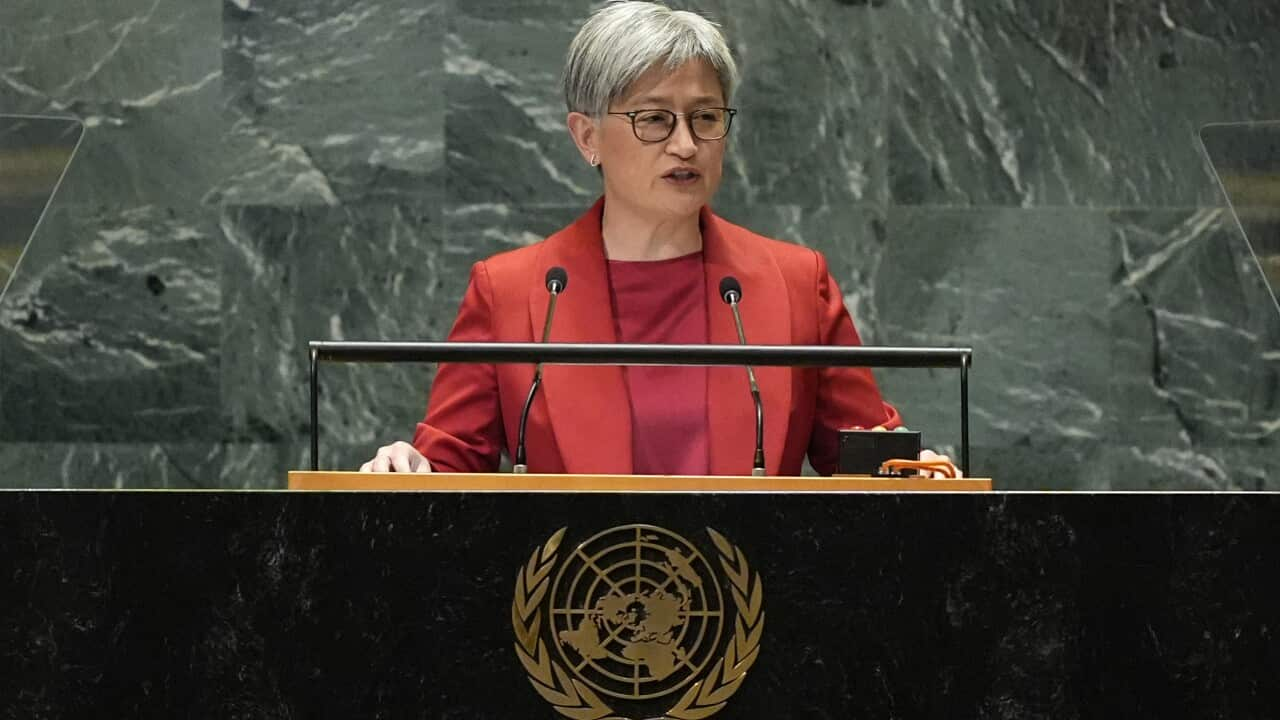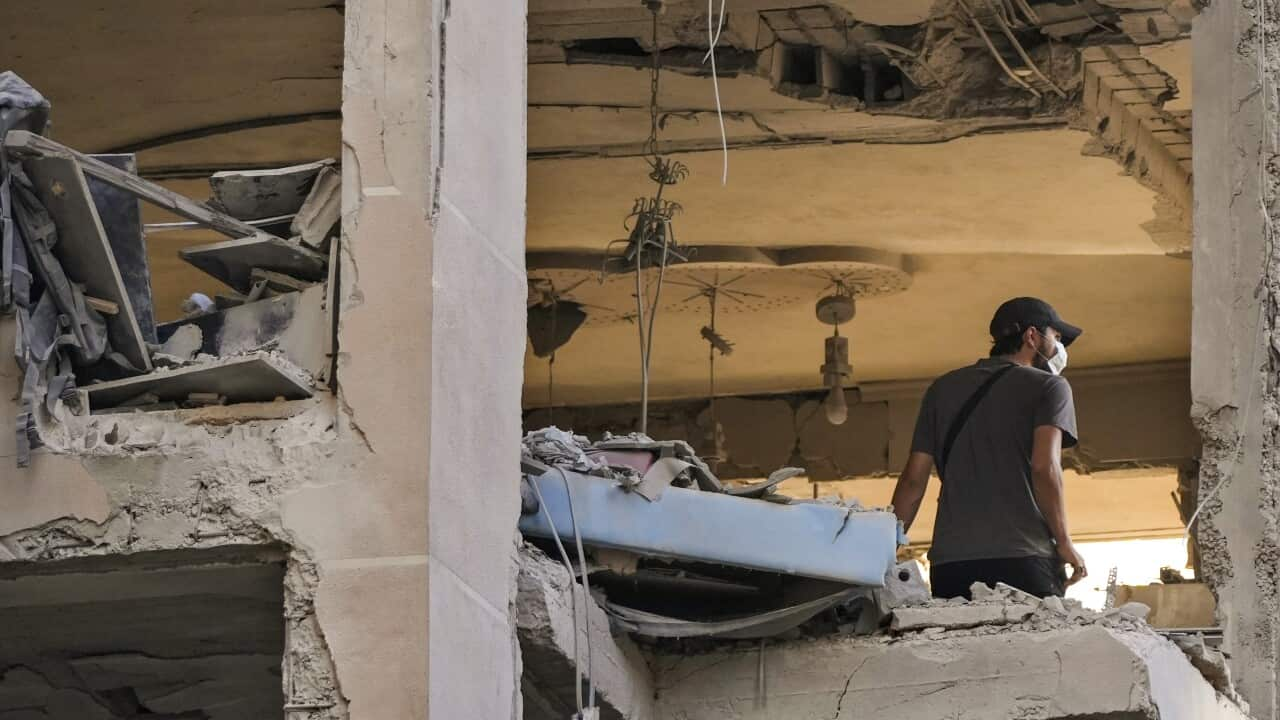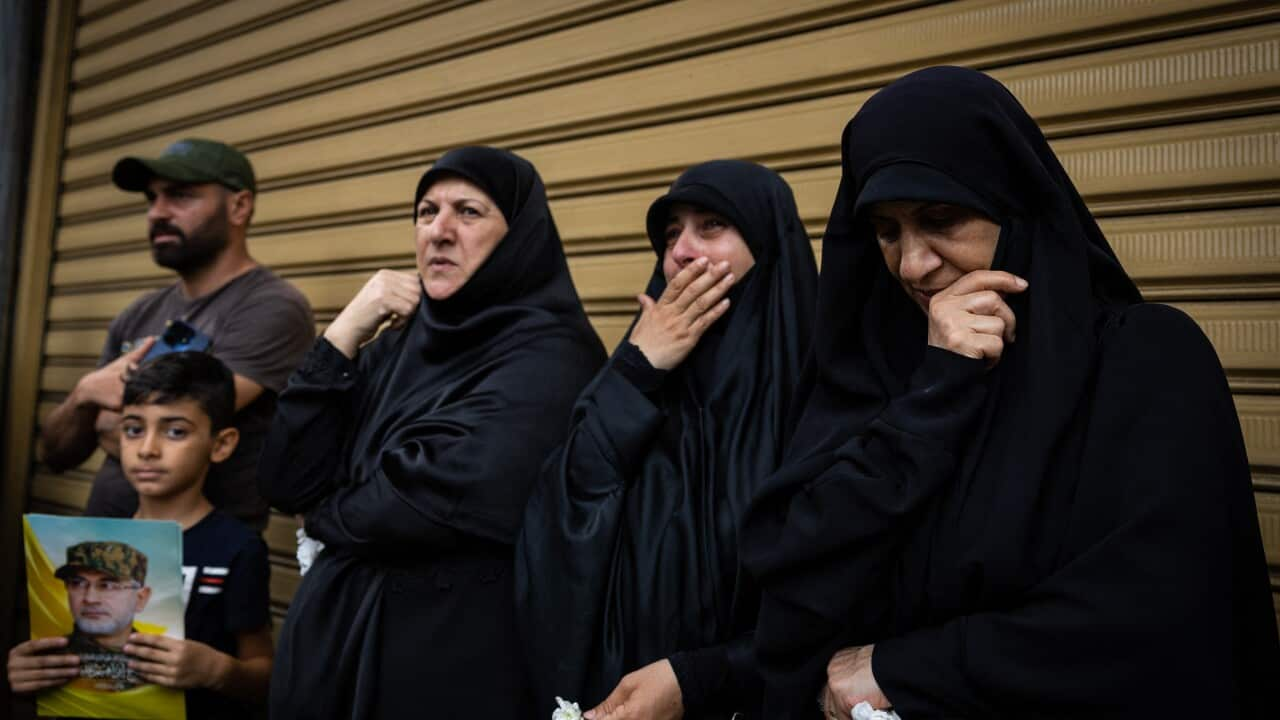KEY POINTS
- A wave of air raids hit southern suburbs of Beirut, Lebanon's capital, before dawn on Saturday (local time).
- It followed a strike on what a senior Israeli official said targeted top Hezbollah commanders.
- Lebanese health authorities confirmed at least six people were dead and 91 wounded in the initial attack on Friday.
A wave of air raids hit Beirut's southern suburbs as Israel stepped up attacks on Hezbollah, after a massive strike on its command centre that apparently targeted leader Hassan Nasrallah.
Reuters news agency witnesses heard more than 20 airstrikes before dawn on Saturday local time (Saturday morning AEST).
Abandoning their homes in the southern suburbs, thousands of Lebanese congregated in squares, parks and sidewalks in downtown Beirut and seaside areas.
An unprecedented five hours of continuous strikes followed Friday's attack, by far the most powerful by Israel on Beirut during nearly a year of war with Hezbollah.
It marked a sharp escalation of a conflict that has involved daily missile and rocket fire between the two sides.
The latest escalation has sharply increased fears the conflict could spiral out of control, potentially drawing in Iran, Hezbollah's principal backer, as well as the United States.
There was no immediate confirmation of Nasrallah's fate after Friday's heavy strikes, but a source close to Hezbollah told Reuters he was not reachable. The Lebanese armed group has not made a statement.
Israel has not said whether it tried to hit Nasrallah, but a senior Israeli official said top Hezbollah commanders were targeted.
Earlier, a source close to Hezbollah told Reuters that Nasrallah was alive. Iran's Tasnim news agency also reported he was safe. A senior Iranian security official told Reuters that Tehran was checking his status.
The Israeli military said in a statement that it had killed the commander of Hezbollah's missile unit, Muhammad Ali Ismail, and his deputy Hossein Ahmed Ismail.
At least six dead in initial attack, Lebanese health authorities say
Hours before the latest barrage, Israeli Prime Minister Benjamin Netanyahu
"As long as Hezbollah chooses the path of war, Israel has no choice, and Israel has every right to remove this threat and return our citizens to their homes safely," he said.
Several delegations walked out as Netanyahu approached the lectern. He later cut short his New York trip to return to Israel.
Lebanese health authorities confirmed six dead and 91 wounded in the initial attack on Friday — the fourth on Beirut's southern suburbs in a week and the heaviest since a 2006 war.
The toll appeared likely to rise much higher. There was no word on casualties from the later strikes. More than 700 people were killed in strikes over the past week, authorities said.
Hezbollah's al-Manar television reported seven buildings were destroyed. Security sources in Lebanon said the target was an area where top Hezbollah officials are usually based.
Hours later, the Israeli military told residents in parts of Beirut's southern suburbs to evacuate as it targeted missile launchers and weapons storage sites it said were under civilian housing.
Hezbollah denied any weapons or arms depots were located in buildings that were hit in the Beirut suburbs, its media office said in a statement.

Rescue workers gather at the site of an Israeli air attack on Hezbollah headquarters in the southern suburbs of Beirut. Source: Getty / Marwan Naaman/DPA
It leads a multi-party alliance that holds just under half the seats in Lebanon's parliament.
Hezbollah is listed as a terrorist organisation by countries including Australia, the US, Israel, Germany and the UK. The European Union lists only its military wing as a terrorist organisation.
However, Hezbollah itself makes no distinction between its political and military wings.
Israel and Hezbollah have most recently been firing missiles at each other since Israel started its bombardment of Gaza following Hamas' attacks on southern Israel on October 7.
Hezbollah fought Israel in 2006, launching rockets into northern Israel and engaging Israel Defence Forces soldiers in southern Lebanon and northern Israel.
The month-long war killed 1,200 people in Lebanon, mostly civilians, and 158 Israelis, predominantly soldiers.
Around 100,000 people in Lebanon have been displaced this week, increasing the number uprooted in the country to well over 200,000.
Israel's government has said that returning some 70,000 Israeli evacuees to their homes is a war aim.
'This must be brought to an end immediately'
US Defense Secretary Lloyd Austin said Washington was not informed of Friday's strike beforehand. President Joe Biden was being kept across developments.
At the UN, where the annual General Assembly met this week, the intensification prompted expressions of concern including by France, which with the US has proposed a 21-day ceasefire.
"This must be brought to an end immediately," French Ambassador Nicolas de Riviere told a Security Council meeting.
At a New York press conference, US Secretary of State Antony Blinken said: "We believe the way forward is through diplomacy, not conflict... We will continue to work intentionally with all parties to urge them to choose that course."












